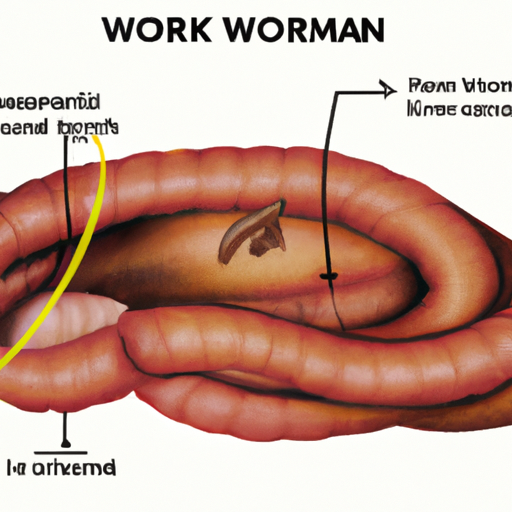As a caregiver, your dog’s health is your top priority. That’s why it’s crucial to know about various health issues that can affect your furry friend, including roundworm.
What is Roundworm?
Roundworms, also known as Toxocara canis, are common parasites found in dogs. They are long, white worms that live in the intestine, and they can grow up to seven inches long. Dogs can get infected by roundworms in many ways, but puppies often get them from their mother’s milk.
How Do Dogs Get Infected?
- From their mother: Puppies can get roundworms from their mother’s milk or even while they are still in the womb.
- From the environment: Dogs can also get infected by ingesting roundworm eggs present in the soil. These eggs can remain viable for years, making any area with dog feces a potential risk zone.
- From prey: If your dog catches and eats an infected rodent, they can also contract roundworms.
Symptoms of Roundworm in Dogs
As the caregiver, you might notice some of the following symptoms if your dog is infected with roundworm:
- Diarrhea
- Vomiting
- Weight loss
- Dull coat
- Potbelly (especially in puppies)
Diagnosis and Treatment of Roundworm
Your vet can diagnose a roundworm infection by examining a sample of your dog’s feces under a microscope. The treatment typically involves deworming medication, which you need to administer orally.
| Medication | How it Works |
|---|---|
| Fenbendazole | Kills adult worms |
| Milbemycin | Kills adult worms |
| Pyrantel Pamoate | Paralyzes the worms |
After treatment, your vet might recommend a follow-up fecal exam to ensure all the roundworms have been eliminated.
Prevention of Roundworm
Preventing a roundworm infection is not only beneficial for your dog’s health but also essential for the health of your family, as roundworms can be transmitted to humans. Here are some steps you can take:
- Regularly deworm your dog, especially if they are at high risk (like puppies or hunting dogs).
- Clean up after your dog immediately to reduce the risk of roundworm eggs contaminating the environment.
- Prevent your dog from eating rodents or other animals that might be infected.
FAQ
1. Can humans get infected with roundworms from dogs?
Yes, humans can get infected by accidentally ingesting roundworm eggs. This usually happens when you come into contact with contaminated soil or dog feces.
2. How often should I deworm my dog?
Puppies should be dewormed every two weeks until they are 12 weeks old, then monthly until they are six months old. Adult dogs should be dewormed at least twice a year, but your vet may recommend more frequent deworming depending on your dog’s lifestyle and risk factors.
3. What should I do if my dog has roundworms?
If you suspect your dog has roundworms, take them to the vet as soon as possible. The vet can confirm the diagnosis and prescribe the appropriate treatment.
4. Can roundworms be prevented?
Yes, regular deworming and good hygiene can help prevent roundworm infection.
5. Are there any complications if roundworms are not treated?
Yes, if left untreated, roundworms can cause serious health problems in dogs, including malnutrition and intestinal blockage.
As a loving caregiver, your dog’s health and happiness are in your hands. Understanding the risks, symptoms, and treatments for roundworms can help ensure your furry friend leads a long, healthy life.



